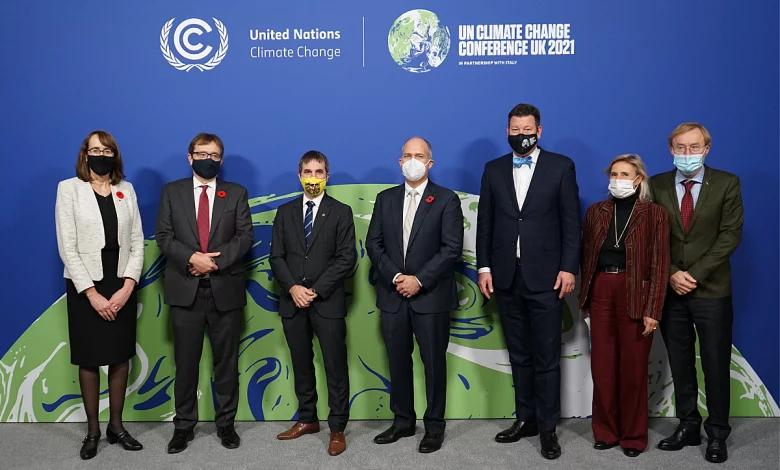
Background
The United Nations is a diplomatic and political international organization whose stated purposes are to maintain international peace and security, develop friendly relations among nations, achieve international cooperation, and serve as a centre for harmonizing the actions of nations.
Join Our UN WhatsApp Groups for Updates | Join Our WhatsApp Channel for UN Jobs Updates
Duties and Responsibilities
UN Environment Programme (Mitigation Branch in the Climate Change Division) hosts the International Methane Emissions Observatory (IMEO). IMEO is a data-driven, action-focused UNEP initiative that takes an innovative approach to address the methane emissions problem by collecting, integrating, and reconciling data from different sources, including scientific measurement studies, satellites, rigorous industry reporting through the Oil and Gas Methane Partnership 2.0 (OGMP 2.0), and national inventories. IMEO is creating a global public dataset of empirically verified methane emissions, with an initial focus on fossil fuel sources and will interconnect data with actions on research, reporting, and regulation. This is catalyzing deep reductions in human-made methane emissions and serve the rapidly growing ecosystem of governments, companies, investors, researchers, NGOs and other entities engaging in this crucial climate challenge. Remote sensing data analysis is needed to collect, filter, and interpret the large amount of data currently arriving from satellites, as this information is an elementary data stream of IMEO. Under the guidance and supervision of the IMEO team, the remote sensing data analyst will collect, filter and study satellite data in order to identify and understand detectable methane emissions from space. The remote sensing data analyst will primarily assist in the analysis of case studies. This is one of the two lines of MARS and consists in identifying, through high-resolution satellite imagery, the main emission point sources in specific methane emission hot spots previously identified by low-resolution satellites. The consultant will work closely with remote sensing scientists and data scientists in the IMEO science group.
Qualifications/special skills
a. Education • Master’s degree in Remote Sensing, Environmental Sciences, Geomatics, or equivalent b. Work Experience • Experience with geospatial data in general, and with remote sensing data and Geographic Information Systems in particular. • Overall knowledge of the fossil fuel sector (practices, methods, assets, …) will be highly valued c. Key Competencies • Knowledge of satellite data processing and visualization, especially of those providing high resolution methane information (PRISMA, Sentinel-2, Landsat, GHGSat …). • Experience with geospatial data, GIS, and data visualization and processing tools such as Google Earth Engine. • Basic programming skills • Knowledge of anthropogenic methane sources, especially those related to the oil and gas sector, would be an asset. • Critical thinking when evaluating the results of methane data and the quality of different data sources. • Excellent written and oral communication skills. • Exceptional personal organization and attention to detail; ability to work independently and as part of a diverse, geographically dispersed team. • Experience in performing rigorous analysis with short deadlines in support of highly visible work. • Experience with geospatial data in general, and with remote sensing data and Geographic Information Systems in particular. • Overall knowledge of the fossil fuel sector (practices, methods, assets, …) will be highly valued.
Languages
English and French are the working languages of the United Nations Secretariat. For this position fluency in English is required.
About UN
The United Nations (UN) is an international organization founded in 1945, currently comprised of 193 Member States. The UN’s work is guided by the purposes and principles contained in its founding Charter. Membership in the organization is open to all peace-loving States that accept the obligations contained in the United Nations Charter and are able to carry out these obligations, as determined by the Organization. States are admitted to membership in the United Nations by a decision of the General Assembly upon the recommendation of the Security Council
The UN has evolved over the years to keep pace with a rapidly changing world. It is neither a State nor a Government and does not possess any authority to recognize either a State or a Government. As an organization of independent States, it may admit a new State to its membership or accept the credentials of the representatives of a new Government
The organization’s work encompasses a wide range of activities, including promoting international cooperation, ending apartheid in South Africa, promoting women’s rights, preventing genocide, and injecting a human rights perspective into all UN programs. The UN has also been involved in addressing global issues such as climate change and peacekeeping operations during various conflicts
The UN has faced criticism for perceived failures, particularly in cases where member states have shown reluctance to achieve or enforce Security Council resolutions. However, it has also been recognized for its efforts in promoting international cooperation and addressing global challenges.




